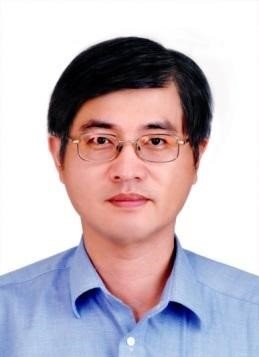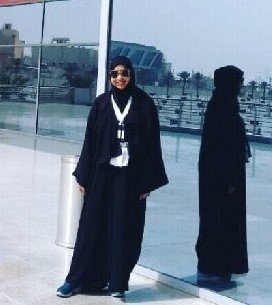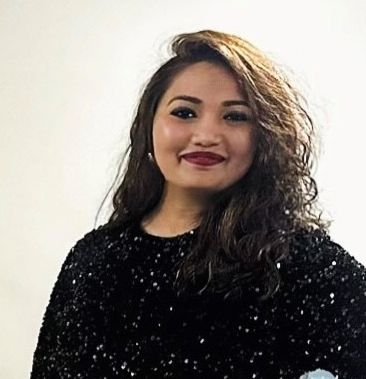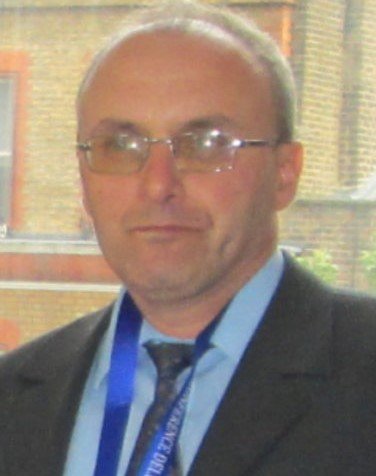- About Journal
- Editorial Board
- Articles
- Submit Manuscript
- Article Processing Charges
- Benefits for Authors
- Membership Program
- Instructions for Authors
- Editor Guidelines
- Reviewer Guidelines
- Peer Review Guidelines
- Special Issues Guidelines
- publication ethics
- Collaborations
- Reprints & permissions
- FAQ
- Contact Us
MSD Trends in Computer Networks and Information Technology
Coming Soon...

Editor In Chiefs
Associate Editors
Editorial Board
Chin-Ling Chen
Professor
Chin-Ling Chen Professor
- Email:clc@cyut.edu.tw
- Department:Computer Science and Information Engineering
- University:Chaoyang University of Technology
- Country:Taiwan
Biography:
Chin-Ling Chen was born in Taiwan in 1961. He received a B.S. degree in Computer Science and Engineering from Feng Cha University in 1991; the M.S. degree and Ph.D. in Applied Mathematics at National Chung Hsing University, Taichung, He is a member of the Chinese Association for Information Security and Taiwanese Association for Consumer Electronics. From 1979 to 2005, he was a senior engineer at Chunghwa Telecom Co., Ltd. He is currently a distinguished professor of the Department of Computer Science and Information Engineering at Chaoyang University of Technology, Taiwan.
He also got the honor of Jilin Changbai Mountain Scholars (China) of Changchun Sci-Tech University and Fujian Minjiang Scholar (China) of Xiamen University of Technology. His research interests include Authentication Mechanism,We b Service, M-Commerce, E-Commerce, Digital Signature, Radio Frequency Identification (RFID),Wireless Sensor , Network,Vehicular Ad Hoc Networks (VANET), Ad Hoc Networks, Home Network, Medical Safety Service and Digital Right Management security issues etc. Dr. Chen had published over 90 articles on the above research fields in SCI/SSCI international journals. And he also got 10 Taiwan patents. From 2006 to 2015, he got the reward of the distinguished researcher every year at Chaoyang University of Technology. From 2010 to 2018, he had been invited to review over 240 SCI/ SSI Journal articles.
Research Interests:
Computer Science and Information Engineering, Authentication Mechanism,We b Service, M-Commerce, E-Commerce, Digital Signature, Radio Frequency Identification (RFID),Wireless Sensor , Network,Vehicular Ad Hoc Networks (VANET), Ad Hoc Networks, Home Network, Medical Safety Service and Digital Right Management security issues etc.
Jana Shafi
Lecturer
Jana Shafi Lecturer
- Email:janashafi09@gmail.com
- Department:Computer Science and Information
- University:Prince Sattam bin Abdul Aziz University
- Country:Saudi Arabia
Biography:
Jana Shafi Lecturer at Prince Sattam bin Abdul Aziz University, Saudi Arabia
Research Interests:
Computer Science and Information
Sumaya Sanober
Faculty
Sumaya Sanober Faculty
- Email:s.sanober@psau.edu.sa
- Department:Computer Science and Information
- University:Prince Sattam Bin Abdul Aziz University
- Country:Saudi Arabia
Biography:
Faculty of Computer Science and Information College of Arts and Science Prince Sattam Bin Abdul Aziz University
Research Interests:
Computer Science and Information, Arts and Science
Bhawna Dhupia
Faculty
Bhawna Dhupia Faculty
- Email:bhawnasgn@gmail.com
- Department:Master of Computer Application From IGNOU (MCA)
- University:Prince Sattam bin Abdul Aziz University
- Country:Saudi Arabia
Biography:
Bhawna Dhupia Master of Computer Application From IGNOU (MCA), Saudi Arabia
Research Interests:
Master of Computer Application From IGNOU (MCA)
Amtul Waheed
Faculty
Amtul Waheed Faculty
- Email:w_amtul@yahoo.com
- Department:Computer Science
- University:Prince Sattam Bin AbdulAziz University
- Country:Saudi Arabia
Biography:
Amtul Waheed Faculty of Computer Science, Prince Sattam Bin AbdulAziz University, Saudi Arabia
Research Interests:
Computer Science
Mamdouh El Haj Assad
Associate Professor
Mamdouh El Haj Assad Associate Professor
- Email:massad@sharjah.ac.ae
- Department:Sustainable and Renewable Energy Engineering
- University:University of Sharjah
- Country:United Arab Emirates
Biography:
Mamdouh EL Haj Assad Associate professor College of Engineering | Sustainable & Renewable Energy Engineering Department Address: University of Sharjah, Department of Sustainable and Renewable Energy Engineering, P. O. Box 27272, United Arab Emirates EDUCATION 1990: B. Sc. in Mechanical Engineering Middle East Technical University, Ankara, Turkey
1992: M. Sc. in Nuclear Engineering Middle East Technical University, Ankara, Turkey 1998: Ph.D. in Mechanical Engineering Helsinki University of Technology, Helsinki, Finland Major subject: Thermal Engineering, minor subject: Power Plant Engineering COURSES TAUGHT 1- Classical thermodynamics 2- Chemical thermodynamics 3- Technical thermodynamics 4- Irreversible thermodynamics 5- Heat transfer 6- Mass transfer 7- Fluid mechanics 8- Geothermal energy systems 9- Solar energy systems 10- Statics and dynamics 11- Engineering management 12- Maintenance 13- Wind energy Lab 14- Heat transfer Lab 15- Energy storage Lab 16- Workshop for mechanical engineers
Geothermal energy, applications of renewable energy in industry, absorption chillers, heat exchangers, artificial neural network analysis of renewable energy systems. RESEARCH INTERESTS Renewable energy systems, energy efficiency, energy and exergy analysis, evaporative cooling, energy conversion systems, and industrial ventilation. COMPUTER SKILLS Microsoft Office, Origin, COMSOL, Maple and Matlab.
Research Interests:
Geothermal energy, applications of renewable energy in industry, absorption chillers, heat exchangers, artificial neural network analysis of renewable energy systems.
Renewable energy systems, energy efficiency, energy and exergy analysis, evaporative cooling, energy conversion systems, and industrial ventilation.
Chaoqun Yue
Ph.D. student
Chaoqun Yue Ph.D. student
- Email:chaoqun.yue@uconn.edu
- Department:Computer Science & Engineering
- University:University of Connecticut
- Country:China
Biography:
Chaoqun Yue is currently a Ph.D. student in the Computer Science & Engineering Department at the University of Connecticut. He received his B.S. degree in Software Engineering from Xi’an Jiaotong University, China in 2011, and M.S. degree in Computer Science from Shanghai Jiao Tong University, China in 2014. His research interests are in the areas of wireless networks and wireless sensing applications.
Research Interests:
Areas of wireless networks and wireless sensing applications
ROMAYNE MARIA CACHART
Project Manager
ROMAYNE MARIA CACHART Project Manager
- Email:romayneba234@gmail.com
- Department:Software Development/Network Segmentation
- University:Lindsey Wilson College
- Country:USA
Biography:
11+ years of experience working as a Project Manager and Business Analyst experience in various domains like Finance, Capital Market, Telecom as well as Banking including financial and reporting experience with strong knowledge of Software Development Life Cycle (SDLC) and extensive knowledge of Agile methodologies like Scrum and Kanban, Waterfall, Rational Unified Process (RUP), Extreme Programming (XP) and Scrum-Waterfall hybrid methodologies.
• Comprehensive knowledge and understanding of Software Development Life Cycle (SDLC), Waterfall, RUP, Agile (Scrum) methodologies.
• Participated in full life cycle implementations including Requirements gathering, JAD sessions, SIT, UAT and postprod support. • Skilled in conducting and facilitating Requirement Gathering Activities using diverse elicitation techniques including JAD Sessions, Interviews, Document Analysis Prototyping Survey/Questionnaire and Brainstorming.
• Good experience in Business Analysis/Business Intelligence including project management, reporting and analytics. Risk Management, Human Resource (HR), • Well versed in facilitating Change Management, Quality Assurance, Defect Tracking, System Integration. • Adept at creating and transforming business requirements into functional requirements and designing business models using Use Case Diagrams, Sequence diagrams and Activity diagrams.
• Expert in identifying pain points and bottlenecks and creating As-Is and To-Be process flows. • Expert in Business Modeling, Requirement elicitation and Requirements gathering, Use Case Modeling. • Extensive experience in facilitating JAD sessions, User group meetings and gathering system Requirements. • Extensive experience in requirements gathering and elicitation, modeling Business Process Flows, writing Business Requirement Document (BRD), Use Case Specification and Functional Specification Document (FSD)
• Extensive experience in facilitating JAD sessions, User group meetings and gathering system requirements. • Experience in reviewing Test Procedures, defining Test Cases, reviewing, and maintaining Test Scripts, Bug Triaging, assistance with automated testing, User Acceptance Testing (UAT) and Postproduction support activities.
• Possess strong command on Defect management using tools such as JIRA, RALLY and HP ALM. Efficient at using Prioritizing and Estimation techniques to estimate User Stories after they were broken down from EPICS using INVEST criteria.
• Thorough understanding of Business Intelligence (BI) and experience in creating interactive, analytical dashboards using Tableau for decision making. • Adopt in developing Wireframes and Mockup Screens using MS Visio & Balsamiq. • Extensive experience in facilitating JAD sessions, User group meetings and gathering system requirements. • Extensive experience in Agile (Scrum, XP), RUP, Waterfall.
• Extensive experience Agile Safe, and Scaled Agile SAFe, assume variability; preserve options, Build incrementally with fast, integrated learning cycles. • Thorough understanding of Business Intelligence (BI) and experience in creating interactive, analytical dashboards. • Experience in providing support to clients in managing business-critical applications and interacting with clients for understanding and resolving incidents.
• Knowledge of IT Service Management tools such as BMC Remedy, IBM Tivoli to be able to log, track and resolve issues. Involved In People soft HRM and HR, SAP, ERP. • Expert in various phases like understanding the User Requirements, Analysis/Design, Testing, Project Management, & Product Development along with end-to-end product delivery across the SDLC phases. • Experienced in requirements gathering and analysis using various elicitation techniques like interviews, surveys, JAD sessions, observation, prototyping and brainstorming. ROMAYNE MARIA CACHART • Experienced in various diagramming techniques like wireframes, Process maps, flowcharts, functional demonstration, context diagrams and BPM modelling techniques. • Worked with AWS Cloud platform and its features which includes EC2, VPC, RDS, EBS, S3, CloudWatch, Cloud Trail, CloudFormation and Autoscaling etc. • High expertise in tracing requirements throughout the development process and verifying adherence to Requirement Traceability Matrix (RTM). • Expert in performing GAP analysis, Requirements Traceability Matrix (RTM), Data mapping and Data Modeling. • The peer-to-peer applications that involve a bank as one of the parties in the transactions are called bank centric procure to pay (P2P) payment apps.
• Possess strong command on Defect management using tools such as JIRA, RALLY and HP ALM. • Efficient at using Prioritizing and Estimation techniques to estimate User Stories after they were broken down from EPICS using INVEST criteria and Care Tools, Billing systems (ICOMS if possible), Offer Management flows and web services and its functionality. • Facilitated Language Translations for all applications associated with the project utilizing SharePoint, JAVA/J2EE repositories. • Involved in Training end users. Assisted in Documentation and Training Modules. • Expert in Tracking and Managing Requirement using Requirements Traceability Matrix (RTM). • Excellent leadership skills to facilitate cross functional teamwork in a fluid environment. • Strong communication skills in eliciting and analyzing requirements. • Real time knowledge of configuration and change management within the corporate environment. • Ability to plan and coordinate all testing phases including creating Test Plans and conducting User Acceptance.
• Comprehensive experience in, Feasibility studies, GAP and Variance analysis, Impact analysis, Risk analysis. • Interacted with business stakeholders to understand their decision-making parameters, analyzing the available data to build Dashboard and managing the delivery. • Experience in working with QA team to develop the Test plans, Test scenarios, Test procedures, and Test cases to ensure adequate testing of software both before and after completion. • Facilitated User Acceptance Testing (UAT) with the stakeholders and the business users as well as trained users to use the system configured. • Proficient in requirement gathering, analyzing, and translating business needs to technical requirements, overall architecture and design. • Experience in Project Initiation, Planning, Executing, Monitoring, Controlling and Implementation Activities. • Extensive experience in coordinating development/design effort, responsible for deliverables, status reporting to management, issue escalations. • Excellent Financial Accounting expertise in Configuring & Testing General Ledger Accounting FI-G/L, Accounts • Payable FI-A/P, Accounts Receivable FI-A/R, Bank Accounting FI-BA & Asset Accounting FI-AA especially in highly Complex Business Environment. • Conversions, Enhancements, Interfaces and Forms in the areas of General Ledger Accounting, Accounts Receivable, Accounts.
EDUCATION: • M.S Technology Management from Lindsey Wilson College. • Bachelor of Commerce Professional (Finance, Banking and Accounting) from Osmania University, India.
CERTIFICATIONS: • CCISO • ITIL • Agile • WATSON • BIG DATA • Six Sigma Green Belt • Data Analyst • Tableau • Scrum Master • Azure DevOps • PMP
Research Interests:
Agile-Scrum, SAP, ERP, Agile SAFe, MS Office 2016, JIRA v6.4, Confluence v5.9, MS Visio, Apache Sqoop v1.4.6, Flume v1.5.2, Spark v2.0.2, Hive v2.1.1, Pig v0.16, HDFS, Tableau v9.3, REST API, HP QC 12.55, Bootstrap v3.3.4, HTML5, CSS3, Web Services. SAFE, MS Office, MS Word, MS Visio, MS Project, MS Project, Tableau, IBM WebSphere, JIRA, HTML, SOAP, Confluence, Share point. Agile/SCRUM, SQL Server 2012/2014, MY SQL, PL/SQL, UAT, Quality Center, C#.NET, J2EE, Oracle 11, TFS, SSIS, SSRS, QTP, ALM. Visual Studio .NET 2008, .NET Framework 3.5 & 4.0, Power BI, SAFE, Azure, DevOps, Office 365, Dynamics CRM, SSRS, SQL Server 2008, JIRA, Confluence, AWS, SharePoint.
Agile methodologies like Scrum and Kanban, Waterfall, Rational Unified Process (RUP), Extreme Programming (XP) and Scrum-Waterfall hybrid methodologies. • Comprehensive knowledge and understanding of Software Development Life Cycle (SDLC), Waterfall, RUP, Agile (Scrum) methodologies. • Participated in full life cycle implementations including Requirements gathering, JAD sessions, SIT, UAT and postprod support. • Skilled in conducting and facilitating Requirement Gathering Activities using diverse elicitation techniques including JAD Sessions, Interviews, Document Analysis Prototyping Survey/Questionnaire and Brainstorming. • Good experience in Business Analysis/Business Intelligence including project management, reporting and analytics. Risk Management, Human Resource (HR), • Well versed in facilitating Change Management, Quality Assurance, Defect Tracking, System Integration. • Adept at creating and transforming business requirements into functional requirements and designing business models using Use Case Diagrams, Sequence diagrams and Activity diagrams. • Expert in identifying pain points and bottlenecks and creating As-Is and To-Be process flows. • Expert in Business Modeling, Requirement elicitation and Requirements gathering, Use Case Modeling. • Extensive experience in facilitating JAD sessions, User group meetings and gathering system Requirements. • Extensive experience in requirements gathering and elicitation, modeling Business Process Flows, writing Business Requirement Document (BRD), Use Case Specification and Functional Specification Document (FSD) • Extensive experience in facilitating JAD sessions, User group meetings and gathering system requirements. • Experience in reviewing Test Procedures, defining Test Cases, reviewing, and maintaining Test Scripts, Bug Triaging, assistance with automated testing, User Acceptance Testing (UAT) and Postproduction support activities
Dariusz Jacek Jakóbczak
Assistant Professor
Dariusz Jacek Jakóbczak Assistant Professor
- Email:dariusz.jakobczak@tu.koszalin.pl
- Department:Electronics and Computer Science
- University:Koszalin University of Technology
- Country:Poland
Biography:
Dariusz Jacek Jakóbczak was born in Koszalin, Poland, on December 30, 1965. He graduated in mathematics (numerical methods and programming) from the University of Gdansk, Poland in 1990. He received the Ph.D. degree in 2007 in computer science from the Polish – Japanese Institute of Information Technology, Warsaw, Poland. From 1991 to 1994 he was a civilian programmer in the High Military School in Koszalin. He was a teacher of mathematics and computer science in the Private Economic School in Koszalin from 1995 to 1999.
Since March 1998 he has worked in the Department of Electronics and Computer Science, Koszalin University of Technology, Poland, and since October 2007 he has been an Assistant Professor in the Chair of Computer Science and Management in this department. His research interests connect mathematics with computer science and include computer vision, artificial intelligence, shape representation, curve interpolation, contour reconstruction, and geometric modeling, numerical methods, probabilistic methods, game theory, operational research, and discrete mathematics.
Research Interests:
Computer Science and Management, His research interests connect mathematics with computer science and include computer vision, artificial intelligence, shape representation, curve interpolation, contour reconstruction, and geometric modeling, numerical methods, probabilistic methods, game theory, operational research, and discrete mathematics.
Boris A. Kobrinskii
Professor
Boris A. Kobrinskii Professor
- Email:kba_05@mail.ru
- Department:Medical and Biological Cybernetics, Pediatrics & Child Surgery
- University:Federal Research Center “Computer Science and Control” of Russian Academy of Science
- Country:Russia
Biography:
Boris A. Kobrinskii, PhD., professor was born in 1944 in Moscow (Russia). In 1970 he graduated from the 2nd Moscow State Pirogov Medical Institute (now N.I. Pirogov Russian National Research Medical University (Moscow, Russia), in 1987 – Department of Medical and Biological Cybernetics of Moscow Institute (now the Technical University) of Radioengineering, Electronic and Automation. In 1973 began to apply computer science in medical diagnostic. In 1975 – 2015 worked in the Moscow Research Institute for Pediatrics and Children's Surgery (Russia), since 1983 head the new information technologies center.
Currently working head of the clinical decision support systems laboratory of Problem Artificial Intelligence Institute of Federal Research Center “Computer Science and Control” of Russian Academy Science. In 1989 – 1996 he taught computer science in medicine in the department of health and social problems of maternal and child health of the Central Institute for Postgraduate Doctors (later the Russian Medical Academy Postgraduate Education), since 2007 professor of Medical Cybernetics and Informatics departments of Pirogov Russian National Research Medical University.
The scientific works of prof. BA Kobrinskii contributed significantly to solving the problems of medical cybernetics and informatics for clinical genetics and monitoring the health of children. As a result of research at the crossroads of pediatrics and informatics created a new scientific direction for a comprehensive dynamic analysis of child health in the process of monitoring computer. He moved the concept of the continuum – transition states of the developing organism and proposed its implementation on the basis a single information, medical and social space using complex mathematical methods and models. The proposed approach was the development of the doctrine of the predisposition to disease. Under the guidance and with his participation created: computer system of medical examination of the child population DIDENAS, Russia's first computer genetic register (1990), the first domestic expert system for the diagnosis of hereditary diseases children DIAGEN. In 1999 organized a Russian computer monitoring of congenital malformations.
In 2002 carried out the development and implemented at all levels of health care software system. Formed a federal database that includes information about the health of nearly 30 million children. Since that time, monitoring permits to obtain new information about the features of the prevalence of diseases and their dynamics, the effectiveness of interventions. In 2001 under his leadership and active personal participation was implemented first national disaster telemedicine system and organized regular teleconsultation support field hospital physicians. The main directions of research is the development of theoretical and applied aspects of the development of Intelligent decision support systems (knowledge engineering, argumentation, fuzzy logic). Under his leadership, made 6 doctoral and 13 master's theses. He is the author/co-author of over 300 articles, 11 monographs, reference book, 3 textbooks.
Research Interests:
Engineering, argumentation, fuzzy logic, Artificial Intelligence, Computer Science and Control, Pediatrics & Child Surgery
Enrique Arribas
Full Professor
Enrique Arribas Full Professor
- Email:enrique.arribas@uclm.es
- Department:Applied Physics
- University:University of Castilla-La Mancha
- Country:Spain
Biography:
Dr. Enrique Arribas Full professor Applied Physics Department University of de Castilla-La Mancha Avenida de España s/n 02071 ALBACETE (Spain) Research fields: Radiofrequency waves Science Education Active Learning Physics Unstable Systems Mathematical and Computer Physics and Chemistry Nonlinear Systems.
Research fields:
Unstable Enzymatic Systems
Mathematical and Computer Chemistry
Qualifications
2007 Ph.D., Chemical Physics, University of Castilla-La Mancha, Spain
1978 M.Sc., Theoretical Physics, University of Valencia, Spain
Skills and Expertise
Teaching and Learning Enzymes Kinetics Analysis Data Analysis Education Science Physical Chemistry Theoretical Physics Biochemistry Higher Education
Research Interests:
Radiofrequency waves Physics Education Active Learning Physics Unstable Systems Mathematical and Computer Physics and Chemistry Nonlinear Systems
GEORGE Olawunmi
Graduate Teaching/Research Assistant
GEORGE Olawunmi Graduate Teaching/Research Assistant
- Email:lherbeur@gmail.com
- Department:Computer Science
- University:Marquette University, Milwaukee
- Country:USA
Biography:
GEORGE Olawunmi, Graduate Teaching/Research Assistant, Computer Science, Marquette University, Milwaukee, USA. A distinguished software engineer and machine learning researcher with proven skills in core programming languages such as Java, Python, R, PHP, and a number of other well-known languages.
Passionate about AI and voraciously researching with ML tools. Enthusiastic and ever-actively seeking to provide machine-intelligent solutions to problems in any area of life endeavor, particularly in computer vision and the Brain-Computer Interfaces field. Skilled with the knowledge and practical use of ML frameworks such as Keras, FB prophet, and Tensorflow. Worked on personal, research, and industry projects with a core understanding of the model and business requirements and the ability to come up with metrics depending on the business need.
Education:
Ph.D. in Computer Science, Expected 2021 Marquette University, Milwaukee, Wisconsin. Research Area & Interests: Machine learning, Deep learning, Big data, and Data Analytics, Brain-Computer Interfaces, Blockchain. Courses: Business Analytics, Advanced databases, Elements of software engineering, Machine learning, Parallel & distributed programming, Business Intelligence, Cybersecurity, Chaotic Signal Processing, Advanced Machine Learning. Research: Researching in mental health, with the use of mobile apps and machine learning techniques, to reduce the suicide rate amongst US army veterans.
Motor imagery-based Brain-Computer Interfaces (BCI) and covert attention-based BCIs. The use of techniques, such as machine learning to classify motor imagery and predict the focus of attention for communication. BSc. in Computer Engineering, Dec 2011 Obafemi Awolowo University, Ile-Ife, Nigeria. 2 nd class Upper Division Courses: Object-oriented programming, Data structures, Statistics for engineers, Databases.
Experience:
Built a Billing Data Aggregator iOS app, using Swift, for creation of invoices, payment of a due amount, and viewing other client information. ? Added features needed to the company’s legacy validation apps for organizations including MasterCard and the Nigerian Postal Service. The Android validation apps were used to verify POS terminals in Nigeria. ? Further developed the incomplete Trips.ng mobile app for launch. The app was built for handling corporate bookings of flights, hotels, and cabs. Researched data science tools and techniques, preliminary use of the ELK stack; setting up of last alerts, to monitor incoming data.
Research Interests:
Machine learning, Deep learning, Big data, and Data Analytics, Brain-Computer Interfaces, Blockchain
Manu Mitra
Systems Analyst/Administrator
Manu Mitra Systems Analyst/Administrator
- Email:mmitra@my.bridgeport.edu
- Department:Department of Alumnus with Electrical Engineering
- University:University of Bridgeport, USA
- Country:USA
Biography:
Manu was born in the year 1986. He completed his diploma in Electronics and Instrumentation Engineering (D.E.I.E.) in the year 2005 at Krishnadeveraya Government Polytechnic. He did his Bachelor of Technology (B.Tech) in Electronics and Communication Engineering in the year 2008. He completed Masters in Electrical Engineering in the year 2009 at University of Bridgeport, Bridgeport, CT US. He worked for five years in Information Technology (IT) as a Systems Analyst in United States and has one approved patent from United States Patent and Trademark Office (USPTO) and two filed patents. He published many articles including research, policies, reviews, mini-reviews, editorial, short communication and letter to editor in various journals. He is an IEEE Member (Member No: 80399531), Member of Golden Key International Honour Society (Member No: 16342916) , Member of Epsilon Pi Tau (Member No: 148800), Member of Sigma Alpha Lambda (Member Id: 206804).
Research Interests:
Electrical Engineering, Nano technology, Nano medicine, Robotics, Quantum Physics, Physics, Electromagnetics
Chandra Sekhar Dronavajjala
Ph.D. Student in Computer Science and Engineering
Chandra Sekhar Dronavajjala Ph.D. Student in Computer Science and Engineering
- Email:chandrad@uconn.edu
- Department:Computer Science and Engineering
- University:University of Connecticut, Storrs, CT
- Country:USA
Biography:
Chandra Sekhar Dronavajjala, Ph.D. Student in Computer Science and Engineering, University of Connecticut, Storrs, CT, USA.
The Pennsylvania State University, University Park, PA. Aug 2011 - May 2013 M.S. in Business Administration (Concentration: Quantitative Marketing/Econometrics).
(I was in the doctoral program left with a Master’s degree after the qualifier exam) Indian Institute of Information Technology, Gwalior, India. Aug 2004 - Jul 2009
Bachelor of Technology in Information Technology & Masters of Business Administration (Integrated Post Graduation).
VOLUNTEER EXPERIENCE
Invention Convention Judge, Connecticut Invention Convention, Storrs, CT 2021- Present
Judge, Student Case Competition, Big Data Health Science, UofSC 2023- Present
Research Interests:
Machine Learning, Bayesian Machine Learning, Graduate Algorithms, Data Mining
LEI Guowei
Associate Professor
LEI Guowei Associate Professor
- Email:200461000044@jmu.edu.cn
- Department:School of Science and engineering
- University:Jimei University
- Country:China
Biography:
LEI Guowei, Ph.D, Assoc. Prof. Date of Birth: May 23, 1977 Place of Birth: Jiangxi Province, P.R. China Gender: Male Nationality: China School of Science, Jimei University 361021 Xiamen City, Fujian Province China. Guo-wei LEI received the B.S., M.S. and Ph.D degree from Gannan Normal University, Xiamen University, Beijing University of Posts and Telecommunications in 1999, 2004, 2019 respectively. He is with the school of science at Jimei University in China.
Qualifications
2019 Ph.D., Beijing University of posts & telecommunication, China, Engineering
2004 M.A., Xiamen University, China, Science
1999 B.S., Gannan normal university, China, Science
Research Interests:
His research interests include wireless communications, signal processing and electronics.
Aisha Abdulaali Abdulla AHMED
Professor
Aisha Abdulaali Abdulla AHMED Professor
- Email:wabdalali1986@gmail.com
- Department:Department of Electrical and Computer Engineering
- University: Bani Waleed University, Bani waleed
- Country:Libya
Biography:
Mrs Aisha Abdulaali Abdullah Ali, Surname: Ahmed. , a resident of Bani Waleed, Libya, I was working as an assistant tutor in 2012, I obtained a Master's degree in general specialization: computer engineering and exact specialization: e-learning from the University of Atilim in the State of Turkey in 2017. I have been working since 2018 as a lecturer in the computer department, Faculty of Education at the University of Bani Walid. Currently, I am in the final research stage to obtain a doctorate in the general specialization: computer engineering, exact specialization: e-learning from Altinbash University, and the overall average is currently (96.73%), (AA).
Training
Course in object oriented programming, data structure, E-learning, Networks, Database, C++.Java, web design, Data Mining., ADO.NET, Computer principles, Mathematics, Physics.
Experience
- 9/ 2010 until 9/ 2011: as a lecturer in Computer Department, Faculty of Education Bani Walid university.
- In 2012, I received a scholarship from the Libyan state to study abroad.
- 1/2016: I was a teacher at Alhadeta Libyan School, Ankara.
- 1.2018: I worked as a teaching member at Al-Zaytoonah University, Libya, and studied several subjects such as computer applications, computer principles, computer drawing, OOP, Data Structure, Networks and ELearning.
- In 2022/2023: Also a teaching member at the Islamic University of Minnesota, located in Minneapolis, USA, and studied several subjects such as Data Mining ,The electronic government course
- In 2023/2024:A teaching member at Institute of Messengers of Civilization, located in Istanbul, and studied several subjects such as Network protection, systems analysis and design, and data structures courses
- I have served as a reviewer for several international journals, including the IEEE Sensor Journal.
- Editorial Board Member of “International Journal of Wireless Communications and Mobile Computing”
Research Interests:
E-learning, web design, programming languages, Computer Maintenance, and Artificial intelligence
Kemi Akanbi
Doctoral Student/Graduate Teaching Assistant
Kemi Akanbi Doctoral Student/Graduate Teaching Assistant
- Email:akanbikr@mail.uc.edu
- Department:Information Technology
- University:University of Cincinnati
- Country:USA
Biography:
Kemi Akanbi is a doctoral student in the School of Information Technology (SoIT) at the University of Cincinnati (UC). She is a teaching assistant in the school and her research interest is in Information Technology education and Human-Computer Interactions.
Kemi is an innovative and dedicated IT professional. I hold a Higher National Diploma (Bachelors degree equivalent) in Computer Science where my journey into the Information Technology world began. My final year project was on Network Traffic anomaly detection and was implemented using C++. This project was the beginning of my interest in network operation. I worked as a Network Operation Center supervisor and incident manager and this role has equipped me with the knowledge of network monitoring tools configuration, analysis of network performance, and incident and people management. I am an active team player with a zeal for more knowledge and led a team of 24 people.
Currently, Kemi is a graduate student in the School of Information Technology, University of Cincinnati; with a research interest in Data Analytics, Machine Learning, Human-Computer Interaction/design, User Experience(UX), and Information security.
Research Interests:
Data Analytics, Machine Learning, Human-Computer Interaction/design, User Experience(UX), and Information security. Methodology Machine Learning Thematic Analysis Research Methodology Research Analysis Data Analysis
Awras Hameed Ajil Al-Rikabi
Assistant lecturer /Lab Instructor
Awras Hameed Ajil Al-Rikabi Assistant lecturer /Lab Instructor
- Email:awras.alrikaby@gmail.com
- Department:Science/Department of Physics
- University:University of Baghdad
- Country:Iraq
Biography:
Dr. Awras Hameed Ajil Al-Rikabi is an experienced physicist currently serving as an Assistant Lecturer and Lab Instructor at the Department of Physics, College of Science, University of Baghdad, Iraq. Born on April 1, 1971, in Baghdad, Iraq, he has a strong academic background with an M.Sc. in Physics from AL-Nahrain University and is currently pursuing a Ph.D. at Universiti Sains Malaysia. Dr. Al-Rikabi has extensive teaching experience, having taught various physics courses at both the University of Baghdad and the Arab International University in Syria. His research interests include solar radiation, nanocomposites, and gamma-ray effects. He has numerous publications in reputable journals and has actively participated in various workshops and conferences.
Research Interests:
Environmental Biology, Biophysics





.jpg)






.jpg)



